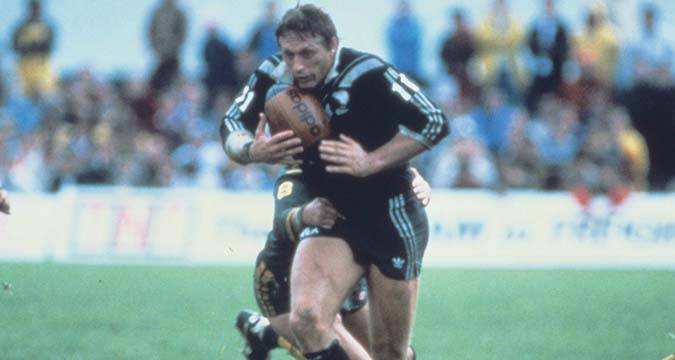 In 2007, Mark Graham was named the greatest of all New Zealand international players. He earned 29 caps and played in the 1988 World Cup Final. The big second-rower was also selected in the all-time North Sydney Bears XIII and had a short stint at Wakefield Trinity.
If you could relive one day from your career, which would it be?
Beating Austra
In 2007, Mark Graham was named the greatest of all New Zealand international players. He earned 29 caps and played in the 1988 World Cup Final. The big second-rower was also selected in the all-time North Sydney Bears XIII and had a short stint at Wakefield Trinity.
If you could relive one day from your career, which would it be?
Beating Austra Rugby League Heroes: Mark Graham
 In 2007, Mark Graham was named the greatest of all New Zealand international players. He earned 29 caps and played in the 1988 World Cup Final. The big second-rower was also selected in the all-time North Sydney Bears XIII and had a short stint at Wakefield Trinity.
If you could relive one day from your career, which would it be?
Beating Austra
In 2007, Mark Graham was named the greatest of all New Zealand international players. He earned 29 caps and played in the 1988 World Cup Final. The big second-rower was also selected in the all-time North Sydney Bears XIII and had a short stint at Wakefield Trinity.
If you could relive one day from your career, which would it be?
Beating Austra 